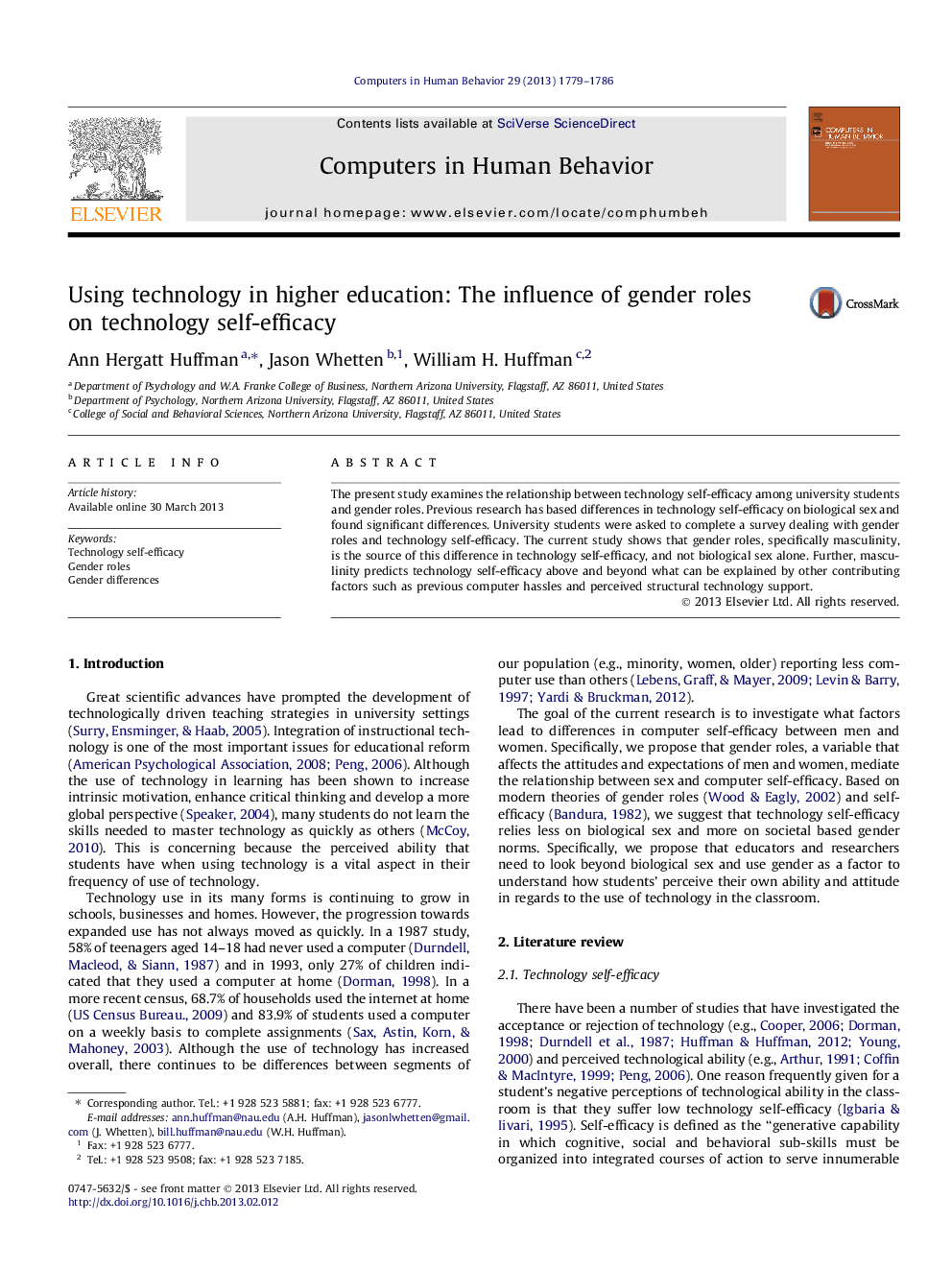| Article ID | Journal | Published Year | Pages | File Type |
|---|---|---|---|---|
| 351082 | Computers in Human Behavior | 2013 | 8 Pages |
The present study examines the relationship between technology self-efficacy among university students and gender roles. Previous research has based differences in technology self-efficacy on biological sex and found significant differences. University students were asked to complete a survey dealing with gender roles and technology self-efficacy. The current study shows that gender roles, specifically masculinity, is the source of this difference in technology self-efficacy, and not biological sex alone. Further, masculinity predicts technology self-efficacy above and beyond what can be explained by other contributing factors such as previous computer hassles and perceived structural technology support.
•We examined how gender roles affect technology self-efficacy.•Gender role and self-efficacy theories were used as theoretical frameworks.•We surveyed college students on technology related attitudes and beliefs.•Situational factors are important in understanding technology self-efficacy.•Masculinity is a strong predictor of technology self-efficacy.
